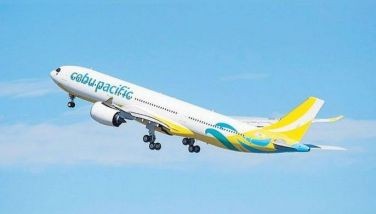Deficit forces government to rethink policy on lowering of tariffs

November 8, 2002 | 12:00am
The government’s worsening budget deficit is forcing the Arroyo administration to rethink its policy on lowering tariffs on certain goods under its commitment with the ASEAN Free Trade Agreement (AFTA).
A host of long-term free-trade plans involving 14 Asian countries led by China was unveiled at the ASEAN summit in Phnom Penh, Cambodia early this week.
Analysts said this is expected to quicken the pace of tariff liberalization and complement multilateralism efforts.
However, government sources said the country is rethinking its plans to lower its tariff walls on some products as it needs the extra revenues collected from the payment of duties on imports.
The budget deficit for the first nine months of the year has already reached P166.47 billion, which is already close to the worst case projection of P183 billion for the whole of 2002.
The sources said President Arroyo had hinted at the change of policy in trade liberalization when she ordered a review of all effective tariff rates.
"In fact, President Arroyo has already deferred the planned lowering of tariffs on raw materials not locally produced," the sources said.
The President did not sign an EO which would have lowered the tariffs on raw materials not locally produced even though she had earlier signed another EO for several other products.
The tariff cuts had previously been agreed upon with local manufacturers. Instead, the government is opting to retain its tariff rates at Most Favored Nation (MFN) levels instead of going full tilt on lowering them as committed under the Common Effective Preferential Tariff (CEPT) scheme of AFTA.
Meanwhile, trade analysts said the flurry of trade deals covering East Asia, although long-term in nature, would knock down tariff walls in the region and complement the efforts of the World Trade Organization (WTO).
They said the liberalization of the ASEAN and Chinese, South Korean and Japanese economies will have a significant impact on the global economy as the 13 East Asian economies represent 23 percent of the world’s gross domestic product and 40 percent of its foreign reserves.
A host of long-term free-trade plans involving 14 Asian countries led by China was unveiled at the ASEAN summit in Phnom Penh, Cambodia early this week.
Analysts said this is expected to quicken the pace of tariff liberalization and complement multilateralism efforts.
However, government sources said the country is rethinking its plans to lower its tariff walls on some products as it needs the extra revenues collected from the payment of duties on imports.
The budget deficit for the first nine months of the year has already reached P166.47 billion, which is already close to the worst case projection of P183 billion for the whole of 2002.
The sources said President Arroyo had hinted at the change of policy in trade liberalization when she ordered a review of all effective tariff rates.
"In fact, President Arroyo has already deferred the planned lowering of tariffs on raw materials not locally produced," the sources said.
The President did not sign an EO which would have lowered the tariffs on raw materials not locally produced even though she had earlier signed another EO for several other products.
The tariff cuts had previously been agreed upon with local manufacturers. Instead, the government is opting to retain its tariff rates at Most Favored Nation (MFN) levels instead of going full tilt on lowering them as committed under the Common Effective Preferential Tariff (CEPT) scheme of AFTA.
Meanwhile, trade analysts said the flurry of trade deals covering East Asia, although long-term in nature, would knock down tariff walls in the region and complement the efforts of the World Trade Organization (WTO).
They said the liberalization of the ASEAN and Chinese, South Korean and Japanese economies will have a significant impact on the global economy as the 13 East Asian economies represent 23 percent of the world’s gross domestic product and 40 percent of its foreign reserves.
BrandSpace Articles
<
>
- Latest
- Trending
Trending
Latest
Trending
Latest
Recommended


























